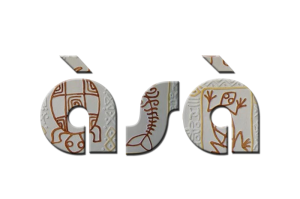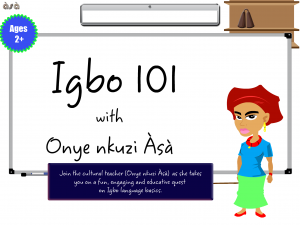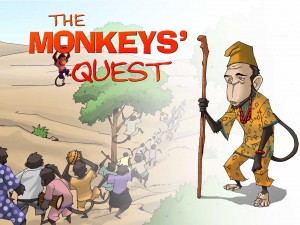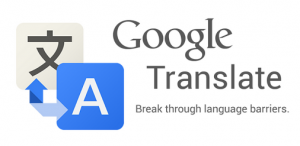![WP_20130910_064[1]](https://www.ktravula.com/wp-content/uploads/2013/09/WP_20130910_0641-168x300.jpg) How long should a stage play last? What if it is a musical drama performance celebrating the fun and foibles of today’s city dwellers? How much of pedagogy should we put in drama today? How do we get Nigerians to imbibe the culture of theatre-going? Today at Terra Kulture, guests at a preview of a musical drama called Saro – the Musical answered these along with their adulations and other brilliant observations on the short preview. I was one of those invited guests.
How long should a stage play last? What if it is a musical drama performance celebrating the fun and foibles of today’s city dwellers? How much of pedagogy should we put in drama today? How do we get Nigerians to imbibe the culture of theatre-going? Today at Terra Kulture, guests at a preview of a musical drama called Saro – the Musical answered these along with their adulations and other brilliant observations on the short preview. I was one of those invited guests.
Written by Bolanle Austen-Peters, Saro – the musical, is a story of hope, love, and adventure; the story of four young men migrating to Lagos with nothing but their hopes and naivete. According to the writer (who also shares the writing credit with two other young Nigerian thespians), the idea for the play came from her nostalgia for the good old days of Nigerian theatre: Hubert Ogunde, the National Theatre, and a number of other cultural art festivals and theatre that were the mainstay of Nigerian entertainment in the sixties and seventies. Saro, she says, is her way of bringing back the culture of theatre-going by investing time, money, and effort into the production of something that is culturally relevant, fun, and entertaining.
As we saw during the performance of four (out of the proposed fourteen) scenes in the musical drama, an enormous amount of work has been put into the production so far. There was dance, choreography, and a brilliant orchestra at the background. The play is directed by Makinde Adeniran (also working as the Executive Director), Ayo Ajayi is the Music Director, Kenneth Uphopho heads the Drama department, while Gbenga Yusuf coordinated the Dance. ZMirage Multimedia Company led by Alhaji Teju Kareem, is the Technical Partner on the project, while the Cultural Advocates Caucus headed by Jahman Anikulapo is handling media and publicity.

If what I witnessed today is any indication of the quality of the final performance, then those who go to see the play (coming unto the Nigerian stage between October and December of this year, and then touring the world afterwards) are in for a treat. My favourite part of musical plays is always the music, and in this case, I wasn’t disappointed. From the introductory sequence featuring a brilliant arrangement of horns and heavy drumming, to a number of other ballads and classical Nigerian musical tunes spliced in-between, if I am able to see it again, I will also look forward to going home with the complete soundtrack.
***
The number of questions raised by some of the guest called forward to proffer suggestions to the performance (guests who include veteran actress Joke Silva, Professor Ahmed Yerima – formerly of the national troupe, famous talk-show host Mo Abudu, veteral broadcaster and music writer Ben Tomoloju, and a host of other guests chosen from the arts) continued in the cafeteria where a lunch buffet was provided. What the consensus was, at least around my table where a few friends and I caught up after a long absence, is that genuine and dedicated theatre-goers and theatre-lovers will stay for any length of time to watch a play if the subject and production catches their fancy, and that the length of a production should never be decided solely on the short attention span of a current crop of Nigerian theatre-goers.
In all, it was a beautiful, stimulating encounter. The musical is highly recommended.
(More information about the performance can be found at http://www.saroterrakulture.blogspot.com/ and http://www.sarothemusical.com/)



